Cats have charmed their way into human hearts for centuries, and their popularity as indoor pets continues to soar. But with so many breeds to choose from, how do you know which one is the best fit for indoor living? In this article, we’ll explore the top indoor cat breeds that not only adapt well to apartment life but also make fantastic companions. Whether you’re a seasoned cat owner or considering bringing your first feline friend home, this guide will help you find the perfect indoor cat breed for your lifestyle.
Choosing the best cat breeds for indoor living is essential for a harmonious household. The ideal indoor cat is not only adaptable to confined spaces but also offers companionship, low-maintenance grooming, and minimal health issues. Let’s dive into the top indoor cat breeds that tick all these boxes and more.
Understanding Best Indoor Cat Breeds
Characteristics of Ideal Indoor Cat Breeds
The best indoor cat breeds typically possess certain traits: they are affectionate, adaptable, and low-energy. These breeds often require less outdoor stimulation and can thrive in smaller living spaces. They are generally more content with human interaction and indoor playtime.
Benefits of Keeping Indoor Cat Breeds
Keeping cats indoors has numerous advantages. It significantly reduces their risk of accidents, diseases, and encounters with predators. Indoor cats also tend to live longer, healthier lives compared to their outdoor counterparts. Moreover, it minimizes their impact on local wildlife.
Ragdoll
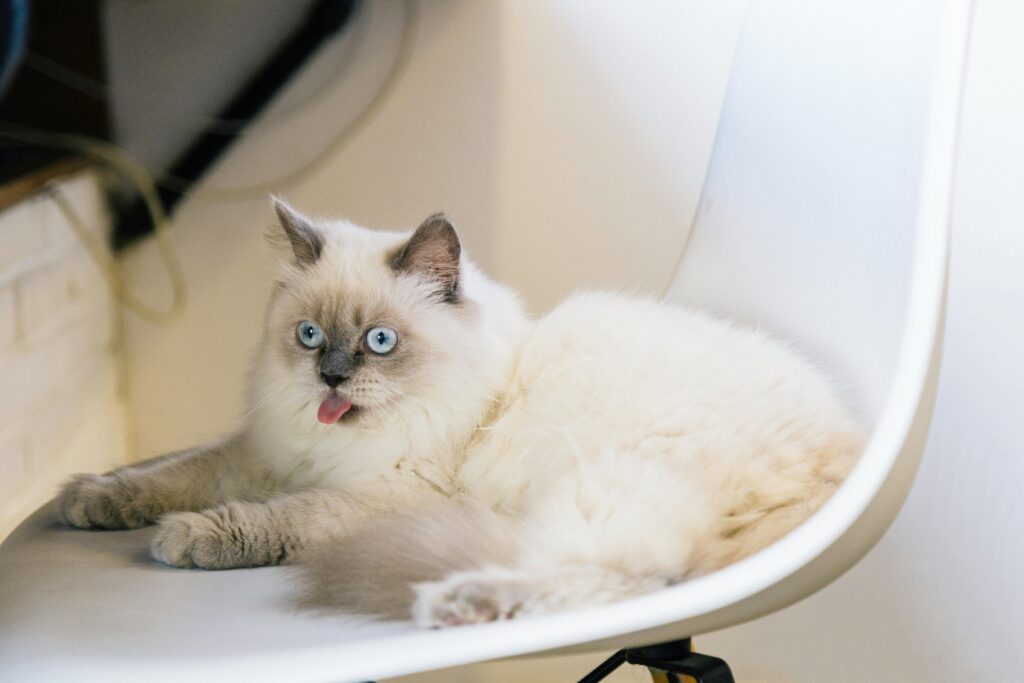
Temperament: Ragdolls are known for their docile and placid temperament. They are affectionate, often described as “puppy-like” because they follow their owners around the house and enjoy being handled.
Activity Level: Ragdolls are relatively laid-back and enjoy lounging around, making them perfect for indoor living. They are not overly energetic, but they do appreciate interactive play.
Grooming Needs: Their semi-long fur requires regular brushing to prevent matting, but their grooming needs are not overly demanding.
Suitability: Ragdolls are great for families with children and other pets due to their gentle nature. They thrive in calm, indoor environments where they receive plenty of attention.
2. British Shorthair
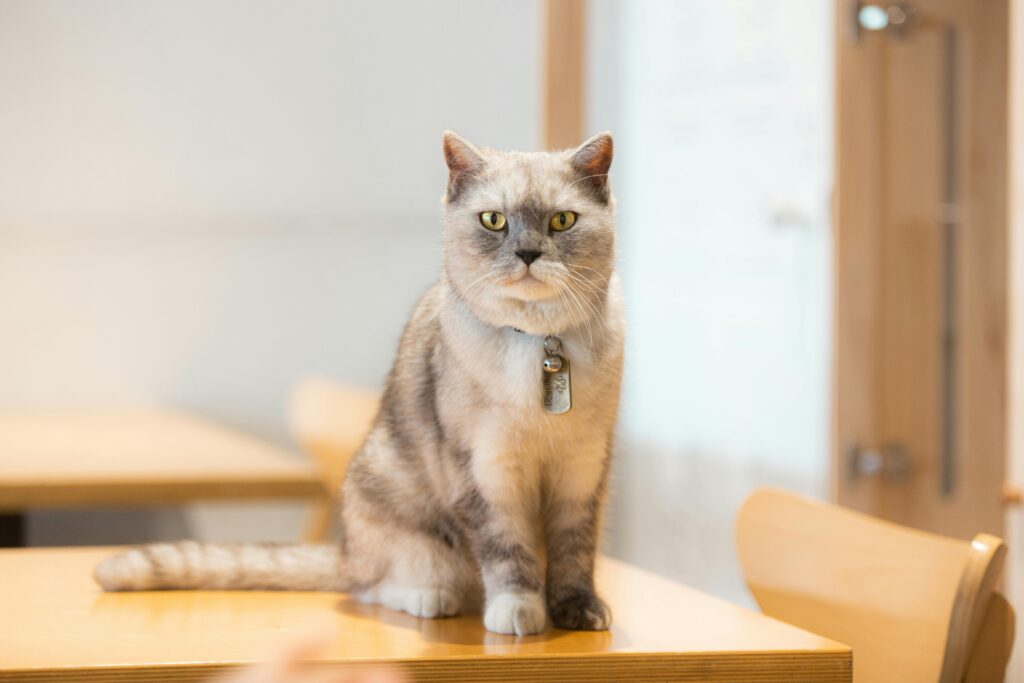
Temperament: British Shorthairs are known for their easy-going and independent nature. They are affectionate but not overly demanding of attention, making them a good choice for people with a busy lifestyle.
Activity Level: They have a moderate activity level, enjoying playtime but also content to relax and watch the world go by.
Grooming Needs: With their dense, plush coat, British Shorthairs require regular brushing, especially during shedding seasons.
Suitability: This breed adapts well to indoor life and can tolerate being alone for moderate periods, making them ideal for working professionals.
3. Scottish Fold
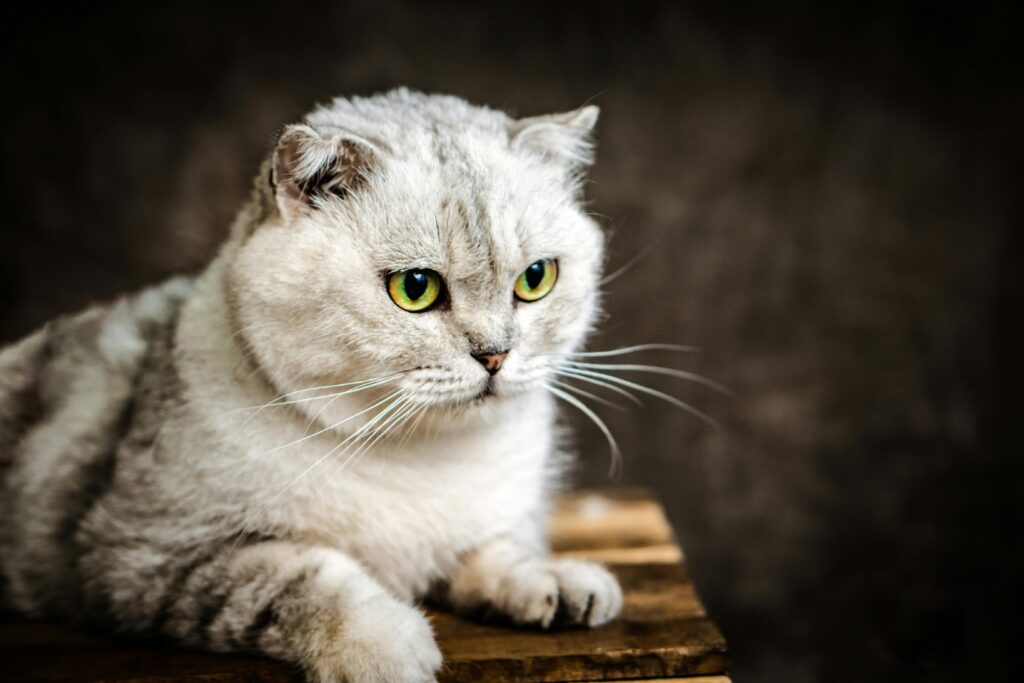
Temperament: Ragdolls are renowned for their calm and gentle nature. They are known for their unique folded ears and enjoy being around their human companions.
Activity Level: They are moderately active and enjoy interactive toys and games but are also content to relax.
Grooming Needs: Scottish Folds have a dense coat that requires regular grooming to keep it in good condition.
Suitability: Their adaptable nature makes them suitable for various indoor environments, including apartments and homes with children or other pets.
4. Sphynx
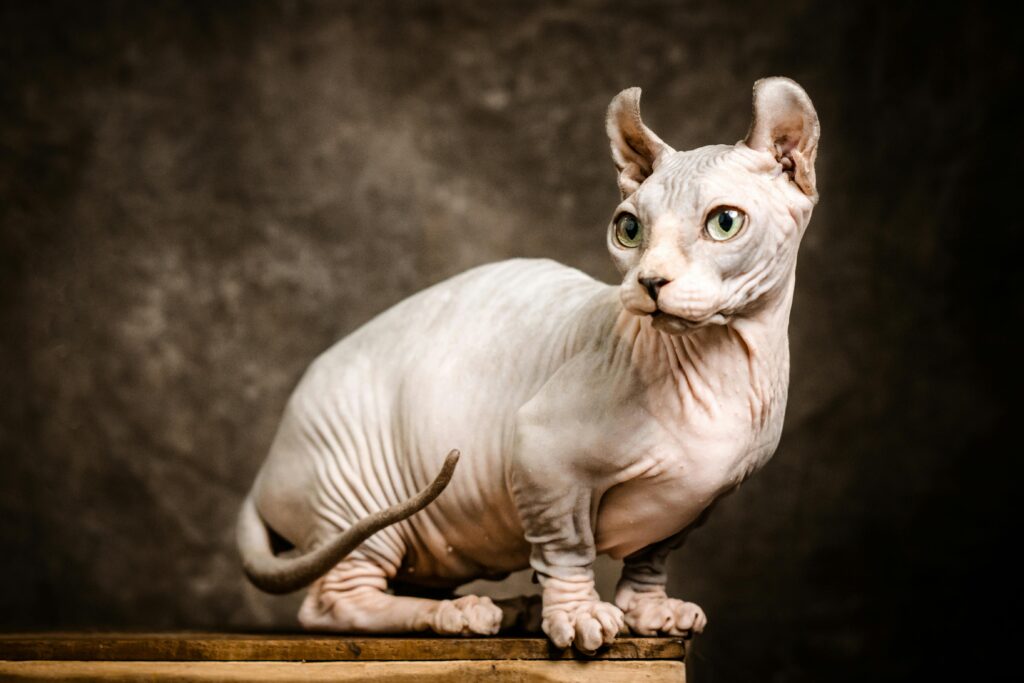
Temperament: Sphynx cats are known for their friendly and extroverted personality. They thrive on social interaction and love being the focal point of attention.
Activity Level: They are active and playful, often engaging in energetic play sessions. Despite their lively nature, they are also very affectionate and enjoy cuddling.
Grooming Needs: While they lack a traditional coat, Sphynx cats require regular skin care, including baths, to remove oils and dirt that accumulate on their skin.
Suitability: Sphynx cats thrive in warm, indoor environments and are great for people looking for an interactive and affectionate pet.
5. Maine Coon

Temperament: Maine Coons are renowned for their friendly and sociable disposition. They are often described as “gentle giants” due to their large size and gentle disposition.
Activity Level: They are moderately active and enjoy interactive play. Maine Coons are also known for their intelligence and can be trained to perform tricks.
Grooming Needs: Their long, thick coat requires regular grooming to prevent tangles and matting.
Suitability: Maine Coons are adaptable and can thrive in various indoor environments. They are good with children and other pets, making them excellent family pets.
6. Persian
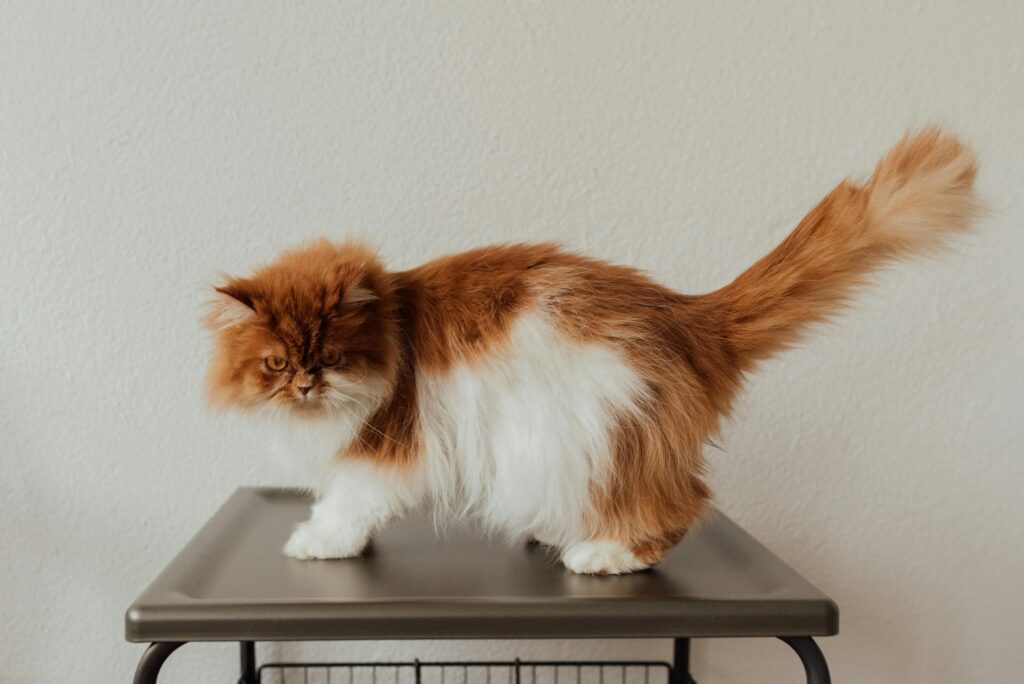
Temperament: Persians are known for their calm and gentle nature. They are affectionate with their owners but are typically less demanding of attention compared to some other breeds.
Activity Level: They are relatively low-energy and prefer a relaxed lifestyle, making them ideal for quiet indoor environments.
Grooming Needs: Persians have long, luxurious coats that require daily grooming to prevent matting and keep their fur in good condition.
Suitability: Their laid-back temperament makes them suitable for quiet households. They are great for people who can dedicate time to their grooming needs.
7. Burmese
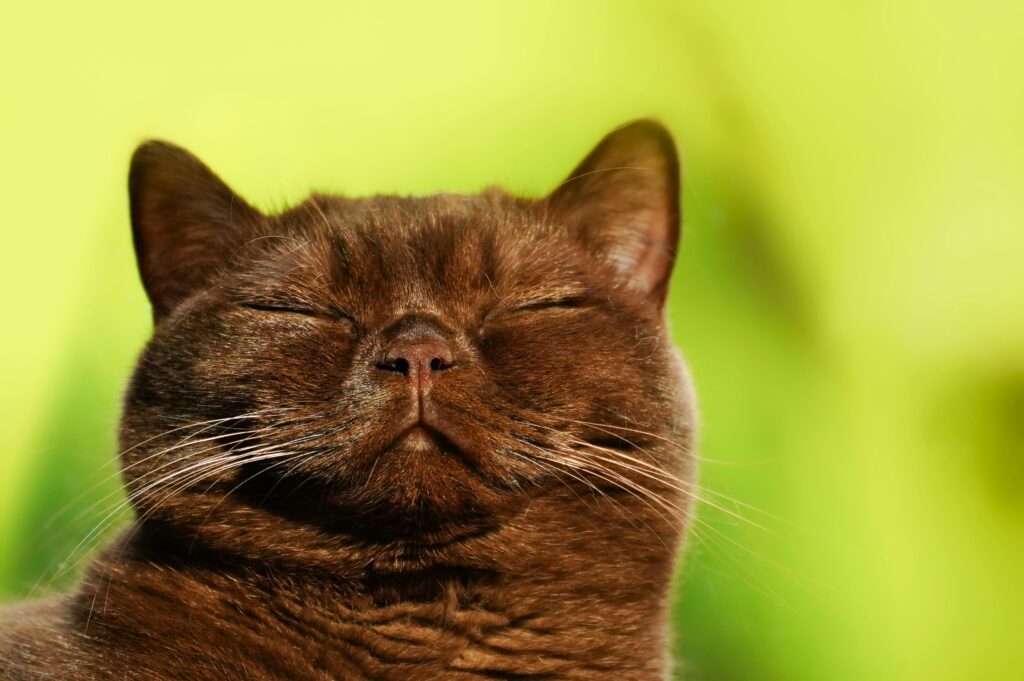
Temperament: Burmese cats are affectionate, loyal, and enjoy being around people. They are known for their dog-like attachment to their owners.
Activity Level: They are active and playful, enjoying interactive games and exploring their surroundings.
Grooming Needs: With their short coat, Burmese cats require minimal grooming, usually just regular brushing to remove loose hairs.
Suitability: Their social nature makes them suitable for homes where they can receive plenty of attention. They thrive in homes with children and other pets.
8. Siamese
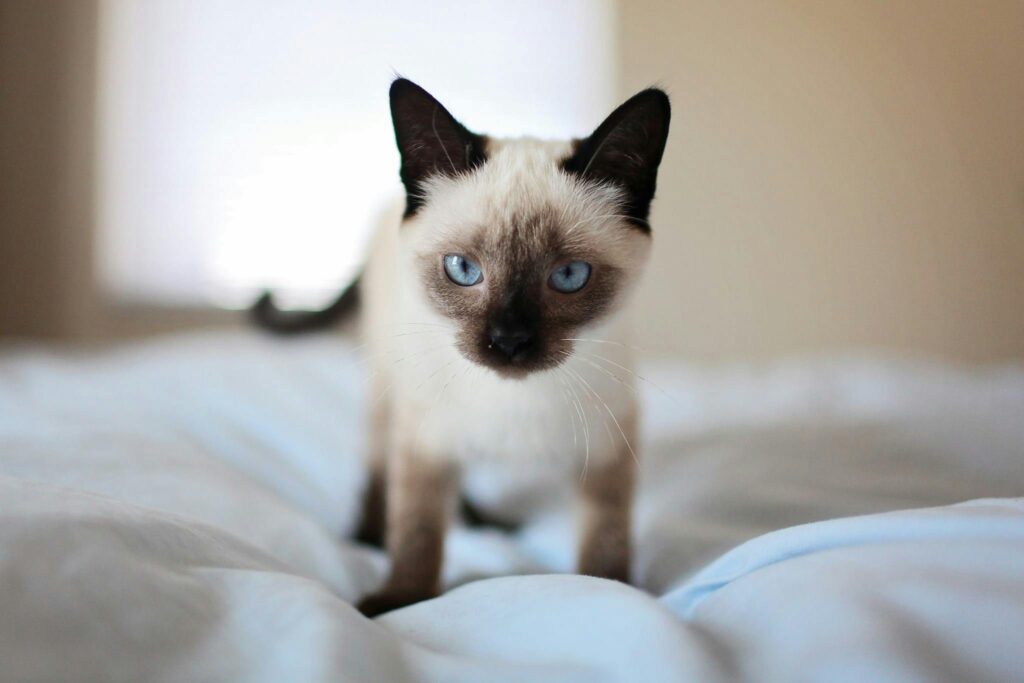
Temperament:
Siamese cats are known for their vocal and affectionate nature. They develop strong connections with their owners and are very sociable. They enjoy being involved in household activities and may follow their owners around the house. Siamese cats are intelligent and curious, often seeking out interaction and stimulation.
Activity Level:
Siamese cats have a high activity level and enjoy plenty of playtime and mental stimulation. They are energetic and playful, often engaging in interactive games with their owners.
Grooming Needs:
Siamese cats have short, sleek coats that need minimal grooming. Regular brushing can help minimize shedding and maintain their coat’s health. They may also benefit from occasional nail trimming and dental care.
Suitability:
Siamese cats are well-suited for households where they can receive plenty of attention and interaction. They thrive in homes where they are considered part of the family and may become stressed or anxious if left alone for long periods. Their vocal nature and social personality make them ideal companions for those looking for an affectionate and engaging pet.
9.Russian Blue
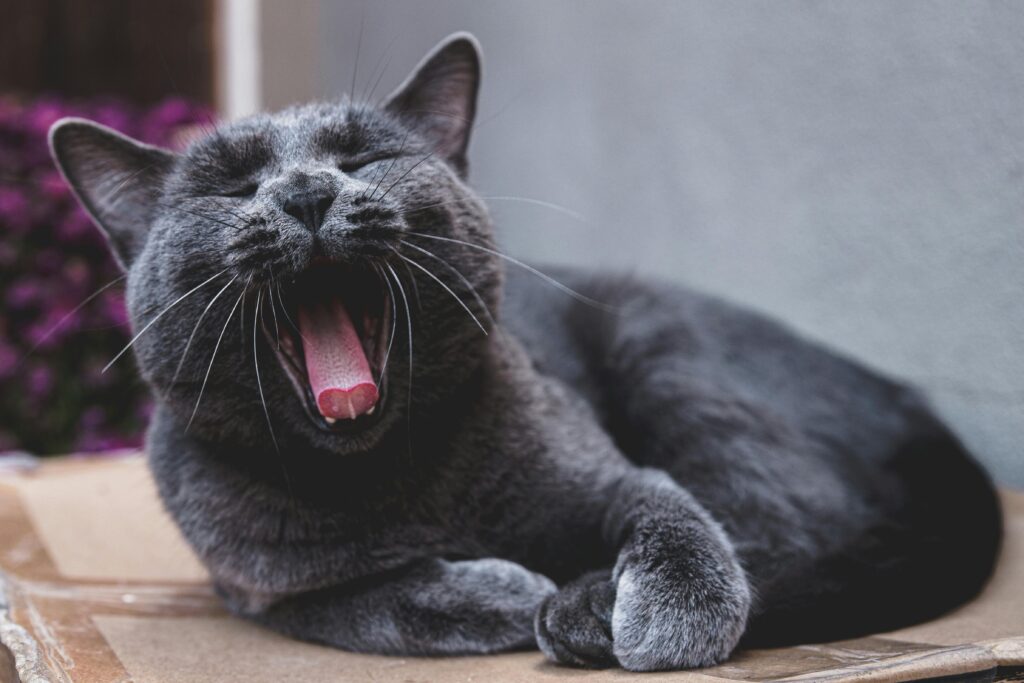
Temperament:
Russian Blue cats are recognized for being both reserved and affectionate. They tend to be more independent compared to some other breeds but still form strong bonds with their owners. Russian Blues are loyal and often bond closely with one or two family members. They prefer a calm and quiet environment and may be wary of strangers.
Activity Level:
Russian Blue cats have a moderate activity level. While they enjoy playtime and interactive toys, they are also content to lounge around the house and observe their surroundings. They appreciate having a comfortable spot to relax and may seek out cozy hiding places.
Grooming Needs:
Russian Blue cats have short, dense fur that is easy to maintain. Regular brushing can minimize shedding and keep their coat in good condition. They may also benefit from occasional nail trimming and dental care.
Suitability:
Russian Blue cats are well-suited for households looking for a calm and gentle companion. They thrive in a peaceful environment and may not do well in homes with loud noises or frequent changes. Their independent nature makes them suitable for owners who appreciate a more laid-back cat but still want a loving and loyal pet.
10.Devon Rex
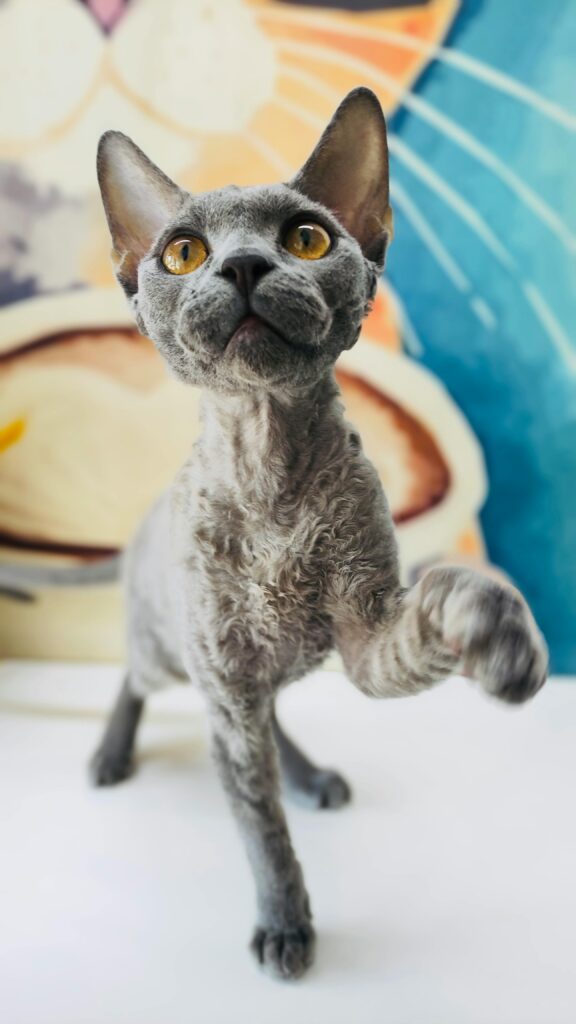
Temperament:
Devon Rex cats are known for their playful, mischievous, and highly affectionate nature. They enjoy being around people and other pets and may seek out attention and interaction. Devon Rex cats are energetic and love to play, often displaying “pixie-like” behavior with their playful antics.
Activity Level:
Devon Rex cats have a high activity level and enjoy plenty of playtime and stimulation. They thrive on interactive toys and games that challenge their intelligence and agility. Providing them with opportunities for play and exploration can help prevent boredom and keep them mentally and physically engaged.
Grooming Needs:
Devon Rex cats have unique wavy coats that require minimal grooming. While they may not shed as much as some other breeds, regular brushing can help remove loose hair and prevent matting. Occasional bathing can also help keep their coat clean and healthy.
Suitability:
Devon Rex cats are well-suited for households looking for an active and affectionate companion. They thrive on attention and interaction and may become bored or anxious if left alone for long periods. Their playful nature and love of stimulation make them ideal pets for families with children or other pets who can provide them with plenty of entertainment and companionship.
Factors to Consider When Choosing Best Indoor Cat Breeds
- Temperament Consider the cat’s personality and how it fits with your lifestyle. Some cats are more social and active, while others are more independent and laid-back.
- Space Requirements Ensure your living space can accommodate the cat’s needs. Bigger breeds might need a larger area to move around and engage in play.
- Grooming Needs Evaluate the grooming requirements of each breed. Long-haired cats need more maintenance compared to short-haired or hairless breeds.
- Health and Longevity Research common health issues associated with each indoor cat breeds and their average lifespan. Choose a breed that aligns with your ability to provide care.
Tips for Keeping Your Indoor Cat Breeds Happy
- Enrichment Activities Ensure there are ample toys, scratching posts, and opportunities for interactive play to keep your cat mentally and physically engaged.
- Creating a Safe Environment Ensure your home is cat-proofed. Remove hazardous items and provide safe spaces for your cat to explore and relax.
- Importance of Regular Veterinary Care Regular check-ups with the vet are crucial for preventing health issues and keeping your cat in top condition.
Conclusion
Choosing the right indoor cat breed can significantly enhance the bond between you and your feline friend. From the affectionate Ragdoll to the playful Devon Rex, each breed offers unique traits that can suit different lifestyles and preferences. By considering factors such as temperament, space requirements, grooming needs, and health, you can find the perfect companion to share your home with.
FAQs
Indoor cats are less likely to encounter dangers such as traffic, predators, and diseases, leading to longer, healthier lives.
Provide a variety of toys, scratching posts, and engage in interactive play. Window perches and cat trees also offer mental stimulation.
Indoor cats can suffer from obesity, dental issues, and boredom-related behavioral problems if not properly cared for.
Grooming frequency depends on the breed. Long-haired breeds may need daily brushing, while short-haired breeds require less frequent grooming.
Indoor cats can be just as happy as outdoor cats if provided with enough stimulation, care, and interaction.
